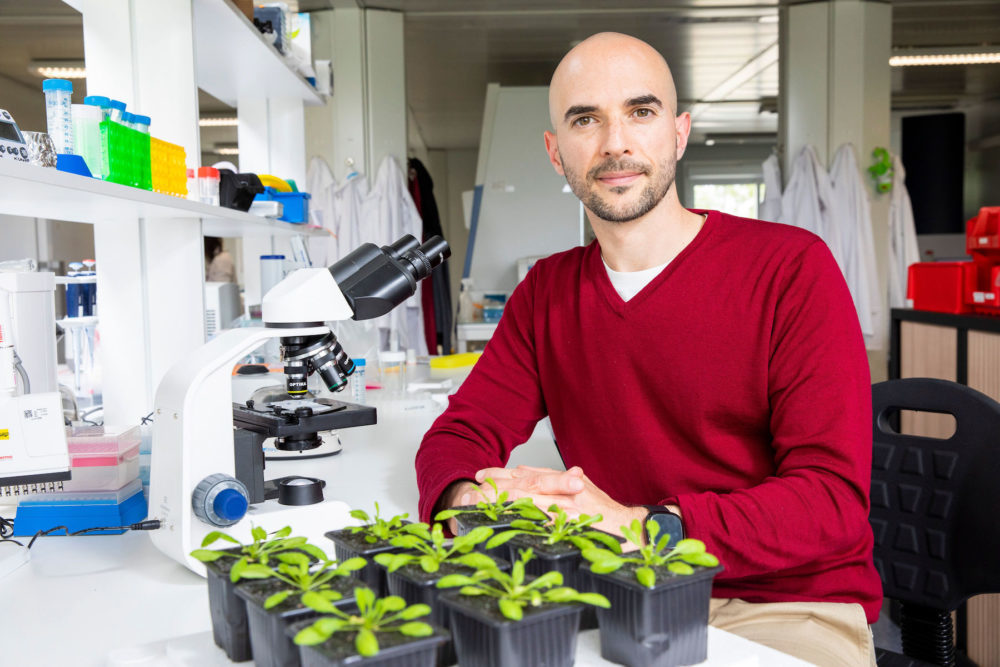Micropep, a French startup developing crop protection products based on small peptides, has closed an extension to its Series A round and expand to the US.
- Micropep has raised €8.75 million ($8.84 million) for this tranche, adding to the €8.5 million ($8.59 million) Series A funding it announced one year ago.
- Fall Line Capital led the Series A extension as a first-time investor in the startup, with existing investors FM
C Ventures, IRDI-SORIDEC, Sofinnova Partners, and Supernova Invest also participating. - The Toulouse-based company will use the fresh capital to fund its expansion to the US and kick off the regulatory process to get its first products to market there.
- Co-founder and CEO Thomas Laurent tells AFN that he’ll be relocating to the US to manage these initiatives.
Funds will also be used to scale production and improve formulation, he says. “We have micropeptides we are confident have good potential, but we still need to finalize formulations.”
How it works:
Micropep was spun out of the Laboratoire de Recherche en Sciences Végétales, which is backed by the University Toulouse-III-Paul-Sabatier and France’s Centre National de la Recherche Scientifique, in 2016.
- Its technology enables the regulation of gene and protein expression in plants without the need to alter their DNA.
- This is achieved through the application of micropeptides — extremely small proteins that plants produce in response to environmental stresses — by methods readily available to farmers, such as spraying.
“Our discovery platform [allows us to] look at plant genomes to identify very small plant proteins — or micropeptides — that we think have specific functions in the plant, for example by encouraging growth, improving flowering, and so on,” Laurent says.
“The platform uses computational bio to identify those. Then we test some of the best candidates to make sure, at end of the day, they are compatible with tank-mix applications and formulations.”
- Micropep’s first product is a biofungicide, for which it will seek regulatory approval.
- This fungicide has shown “very good results” during early field trials which were made possible by last year’s initial Series A tranche, according to Laurent.
- The startup’s second product in development is a bioherbicide targeting weeds that have developed resistance to conventional chemical-based controls, such as glyphosate.
Why it matters:
For decades, farmers have sought to deal with weeds and fungi that harm their crops by spraying their fields with chemicals. However, as time has passed, many of these pest species have developed resistance to these chemicals – leading to farmers applying them in ever-greater quantities. This results not only in increased costs for growers, but also in negative environmental impacts through runoff and potential health issues via exposure.

“The lock has changed, so the key isn’t working any more,” Laurent says. “The target we are going after is a new mode of action.”
“[Also] we are using compounds that are already part of the natural ecosystems of plants. Peptides are not considered as exogenous when they enter plants.”
He adds: “The benefit of that is we know this small type of compound can penetrate leaves easily, which is a critical need if you need strong efficacy.”
What’s next:
Laurent will relocate to the US to oversee Micropep’s international expansion and regulatory timetable – two key areas of investment following the startup’s Series A extension.
One reason for focusing on the US is the business ecosystem and investor network available to biological inputs startups, given the greater number of players in the segment there, according to Laurent.
Another is the potentially faster time to market compared to the EU regulatory regime, he says.
“Typically we believe it will be two to three years through the [US Environmental Protection Agency] biochemical route against four or five years, if we’re lucky, in Europe. So we’re not giving up on Europe, but time-to-market we know its going to be faster [in the US] than in Europe. Also, if we want to be considered as an international company, it’s important we launch in the US.”
Some of the Series A-plus capital will go towards what Laurent describes as a new “bioprediction platform” that will assist the company in targeting candidate peptides for commercialization.
“It’s one thing to identify micropeptide sequences; it’s another one to have something efficient and cost-competitive,” he says.
What they’re saying:
Thomas Laurent, co-founder and CEO, Micropep
“You had two main types of compounds: the first one is chemistries, compounds targeting specific enzymes; and then on the bio side of things, the dominant type of tech is microbial […] For me, Micropep is leading a team of companies exploring a third way: compounds that are natural, but are not living organisms – proteins, peptides, RNA, a whole new category.”




